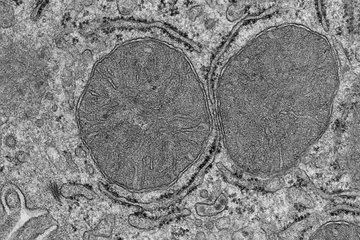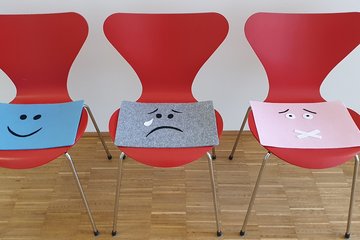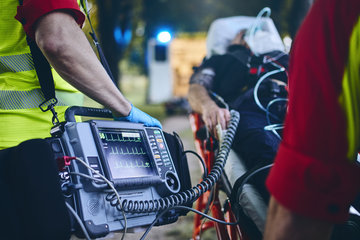Cellular waste system disposes of coronavirus
Scientists discover a possible starting point for medications to treat coronavirus infections
Research into basic cellular processes continually leads to unexpected discoveries. A study by researchers from the Max Planck Institute of Psychiatry in Munich, the University Clinic in Bonn, and Charité in Berlin illustrates how even basic research can lead to new medical treatments. The scientists studied proteins responsible for recycling waste materials. These proteins allow our cells to cope with stress and can be regulated with approved medications. Because cells with these proteins also degrade invading coronaviruses, the active ingredients in these medications could also be used against the pathogens. At the Lead Discovery Centre in Dortmund, researchers are now looking for further active ingredients with which they can activate cellular waste disposal against the viruses.
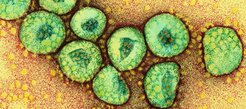
Mental and physical stress is an important risk factor for the development of psychiatric diseases. The cells of the body also react to stress. Especially during physical stress, they increasingly dispose of cell components that are no longer needed or which are harmful. This allows the cell to survive deficiencies and renew damaged cellular components. This type of waste disposal can also fight some viruses.
The working group of Theo Rein at the Max Planck Institute of Psychiatry recently discovered that the stress protein FKBP51 controls this recycling machinery, which is also known as autophagy. Nils Gassen, who now heads a working group at the University Clinic in Bonn, has discovered another protein responsible for waste disposal that can be regulated by different substances. “Among them are already approved medications”, says Theo Rein. Together with Marcel Müller and Christian Drosten from the Institute of Virology at Charité in Berlin, Max Planck researchers have discovered that these active ingredients can inhibit the proliferation of the MERS coronavirus in cells.
No antiviral drugs available
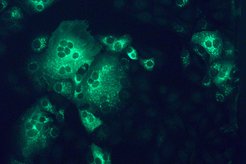
Like the SARS coronavirus, the MERS coronavirus is a relative of the new coronavirus (nCoV-2019), which is responsible for the current outbreak in China. In humans, the MERS coronavirus can cause severe pneumonia, which is fatal in more than 30% of cases. So far, there is neither an approved therapy nor a vaccine.
“It remains to be seen whether cellular waste disposal can be used to fend off corona viruses in humans”, says Rein. Scientists at the Lead Discovery Centre in Dortmund, a spin-off of the Max Planck Society, are currently investigating substances that can trigger autophagy in cells. New medications for the treatment of coronavirus infections and various other diseases can then be developed.
TR/HR








